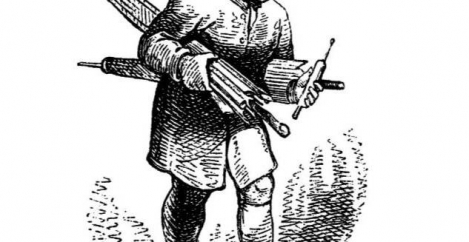October 17, 2017
Majority of workers are sleep deprived and stressed, negatively impacting their performance and wellbeing
 Over three quarters (77 percent) of British workers admit that having a bad night’s sleep negatively impacts their working day, with 27 percent claiming that they feel exhausted on a daily basis, according to a new study from jobsite CV Library. The study explored the attitudes of 1,300 workers around the topic of sleep and the workplace and was conducted with input from Neuroscientist Professor Jim Horne. The research claims that three quarters of Brits (74.5 percent) cite workplace stress as a key cause of their disrupted rest, with a further 92.5 percent admitting that a stress-related disrupted sleep negatively affects their emotions. What’s more, while the majority of workers (58.9 percent) would like to get 7-8 hours of sleep a night, only 26.1 percent currently achieve this, with most people (56.8 percent) actually receiving 5-7 hours. The research claims that sleep deprivation is most likely to affect an employee’s ability to stay focused (72.7 percent) as well as their ability to deal with challenging situations (46.5 percent) and make important decisions (34.2 percent).
Over three quarters (77 percent) of British workers admit that having a bad night’s sleep negatively impacts their working day, with 27 percent claiming that they feel exhausted on a daily basis, according to a new study from jobsite CV Library. The study explored the attitudes of 1,300 workers around the topic of sleep and the workplace and was conducted with input from Neuroscientist Professor Jim Horne. The research claims that three quarters of Brits (74.5 percent) cite workplace stress as a key cause of their disrupted rest, with a further 92.5 percent admitting that a stress-related disrupted sleep negatively affects their emotions. What’s more, while the majority of workers (58.9 percent) would like to get 7-8 hours of sleep a night, only 26.1 percent currently achieve this, with most people (56.8 percent) actually receiving 5-7 hours. The research claims that sleep deprivation is most likely to affect an employee’s ability to stay focused (72.7 percent) as well as their ability to deal with challenging situations (46.5 percent) and make important decisions (34.2 percent).
Professor Jim Horne comments: “Most work situations require individuals to make critical decisions, remain focussed and complete tasks within a timely and efficient manner. However, it’s clear from these findings that sleep loss can impair attention to detail amongst workers. The longer a person is awake, the more likely their mood is to be negatively affected, as well as their willingness to take risks in the workplace. Again, this could be cause for concern.”
The study also explored the topic of night workers, and found that one third (33.5 percent) of individuals who work night shifts suffer from excessive sleepiness during their working hours, with one in five (20.8 percent) then driving between 5 and 10 miles home afterwards. Worryingly, nearly two thirds (63 percent) admit that their employer has not provided any advice on how to cope with night shifts.
Professor Jim Horne adds: “By the end of the first night on a 12 hour night-shift, an individual may have been awake for up to 24 hours, potentially leading to impairments when it comes to dealing with unexpected challenging situations. If you do work night shifts, try and get into a routine when it comes to sleep: at the end of your shift, drink a couple of cups of coffee and aim to get your longest sleep during the afternoon, rather than when you get home in the morning. It is difficult to sleep in the morning as the body clock wants you to wake up, whereas in the afternoon it has a natural dip and allows for better sleep, and a less sleepy night shift.
“Similarly, people that work jobs which require driving during the night should take precautions. During breaks, have a couple of cups of coffee (or another caffeinated drink), then immediately find a quiet place for a short 15 minute nap as it will take 20 minutes before the caffeine will kick in. Then take a brief walk to freshen up. This combination has been tried and tested by us, confirmed by others, and is now included in the UK Highway Code.”
Individuals that work outdoors receive the longest amount of sleep each night (33.7 percent received 7-8 hours) and were the most likely to sleep well. Managers on the other hand were the most likely to rarely sleep well at night, as well as being the most likely to reference workplace stress as their main cause for sleep deprivation.
Main image: Vilhelm Pedersen (1820-1859) illustration of the Sandman for the fairytale “Ole Lukøje” (Mr. Sandman) by Hans Christian Andersen. Public Domain
















